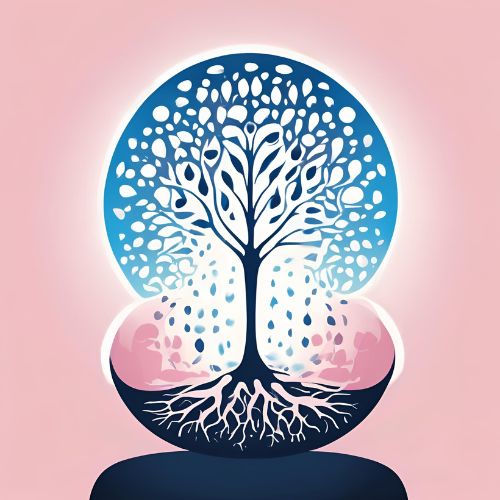The Subconcsious and its 'Seeds'

According to the Cheng Wei Shi Lun, the eighth consciousness consists of 'seeds'. They are, simply speaking, everything we have ever experienced. Note: This article is not a prerequisite for doing the self-help program; but interested readers find here a more detailed overview about the Buddhist concept of seeds.
Simply speaking, ‘seeds’ are potentials. They are what the deepest level of the subconscious mind consists of and they are the result of everything we have ever experienced. What we think and do makes a seed either grow or cripple, become virtuous or amoral, etc. This is called 'perfuming' in the CWSL. A seed which is perfumed will ripen and bear fruit, which means that the conscious mind will manifest as thoughts, words and deeds. Subsequently, we will experience the consequences of these actions, which produces new seeds, and so on, and so on.
The CWSL distinguishes different types of seeds.
Primordial seeds are said to have been there from the beginning of time and they are totally free from afflictions, i. e. they are not associated with any akusala (negative) states of mind. Because of this, they are said to be virtuous by nature (read the article about kusala and akusala to learn about why a calm mind is naturally virtuous according to Buddhism). It is these primordial seeds which are our potential to become enlightened; however, a seed can not grow on its own, and therefore the primordial seeds must be nurtured before we can achieve enlightenment. This is what Buddhists do by cultivating the Noble Eightfold Path (a framework of good conduct).
Perfumed seeds: The second type of seeds is not primordial, but is created by the above described ‘perfuming’ process. Those are the seeds which are incessantly created by what we think, say and do and by experiencing the consequences of our actions. Perfumed seeds may bear fruit at different times, sometimes immediately, sometimes only later in the future, when the necessary conditions are met.
Form seeds/mental seeds: Some seeds manifest as physical form; for example, you may imagine the genetic alleles you get from your father and mother as such ‘seeds’ (Buddhist scriptures of course do not mention genetics, but speak of internal seeds of the four elements (earth, water, fire, wind), which all of us carry and which upon birth manifest as our physical body). Other seeds are purely mental. Though form seeds can only create form seeds and mental seeds can only create mental seeds, they may influence each other; think of an artist, for example, who envisions a masterpiece in his mind and then grabs a brush and a canvas to make it 'come to life’!
Shared seeds: So, if each of us creates their own reality based on their individual composition of seeds, how come there are some things which not only one person, but everyone can see; like mountains, rivers, and the Eiffel tower? This is because there is yet another seed category called ‘shared seeds’. It means that the members of a group of beings, like humans, for example, think and behave alike in many ways, so that they create mental images which resemble each other. According to the CWSL, beings manifest the land they inhabit in accordance with their spiritual level. And of course, this level is different between beings. Therefore, though we may indeed all see rivers, mountains, the Eiffel tower, and other things created by the seeds of form, our experience of them will still differ, so that we cannot really speak of a ‘collectively shared world’ apart from consciousness.
No matter which type of seeds, they always follow the principle of cause and effect: no seed arises ‘out of nowhere’. This is what gives continuity to our existence; the continuous stream of seeds manifesting themselves in the form of a human consciousness, for example, allows us to grow up and grow old, but there will never be a seed which suddenly magically transforms us into an elephant. Nor will there be a magic seed which will make your OCD disappear then and there. But seeds are indeed not only the cause, but also the potential cure for OCD; it just depends on what kind of seeds we nurture and which seeds we prevent from arising. Read more about how to do this in the section 'OCD in terms of the CWSL'.